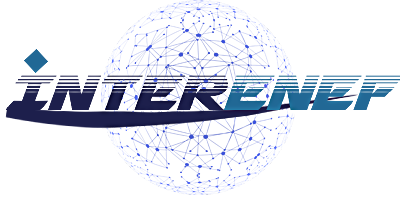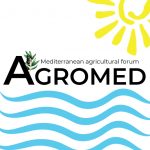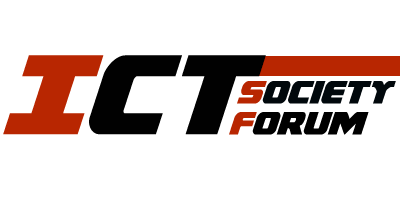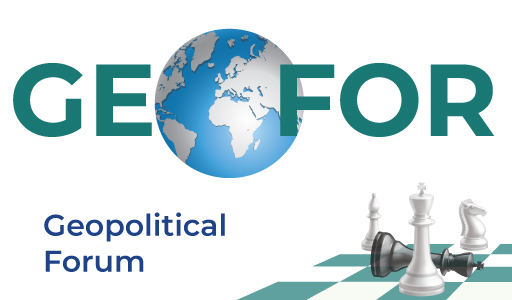INTERENEF - Energy forum
- Director: prof. dr. sc. Anđelko Milardović, Zagreb / Split
- Place: Split, Cornaro Hotel
- Date: 23.7.2021
- 5.INTERENEF – EU Energy Policy and Energy Democracy
Panels:
1.EU energy policy. A common energy market between myth and reality
2.Geopolitics of energy. Northern Stream and the role of global players: Germany-Russia-USA. A war of all against all
3.Energy democracy
1.Definition
- The Energy Forum (INTERENEF) is conceived as a meeting place for actors from universities, energy companies, governments/politics, and the media to reflect on problems and offer solutions of different dimensions of energy policy.
- The forum will also address the geopolitics of energy as an important component of the energy policy of governments and states at the global level.
- The Energy Forum is the only one in the Republic of Croatia and in Southeast Europe that systematically deals with various dimensions of energy policy at the national, EU and global levels (globalization of energy).
2. Concept
- The Energy Forum promotes the policy concept.
- The Energy Forum has been placed within the framework of political science. The basic idea of political science, related to energy, is the idea of power and empowerment of actors in the international community by using energy resources as a lever of power.
- The Forum seeks to promote the meaning and importance of energy diplomacy linked to foreign policy and overall national security, in particular energy security.
3.Goals
- Promotes the importance of energy policy for the functioning of the economy and society within the policy concept and energy policy as a type of public policy.
- Presents the energy strategies of nation-states, the EU and global energy strategies.
- Analyzes the importance of energy diplomacy in the context of energy geopolitics as a component of the energy policies of governments and states.
- Demonstrates the importance of securitization in the context of energy supply or energy security within the framework of national security.
- Investigates the economic dimension of energy and energy diversification.
- Promotes the concept of energy transition and renewable energy sources with special emphasis on climate change.
- Promotes energy democracy. Special emphasis will be placed on the presentation of the public energy policy of the Republic of Croatia.

ICT society forum
- Director: Nandino Lončar, Osijek
- Place: Osijek, Faculty of Economics, University of Osijek
- Date: 18.6.2021
- 4. ICT society forum: Digital economy
Paneli:
1.Upcoming digital opportunities
2.New forces of the digital economy: AI, blockchain, IOT
3.ICT and digital transformation in Croatia. Risks of falling behind
1.Definition
- The ICT Society Forum was founded in Osijek in 2017. The founders are Anđelko Milardović and Nandino Lončar.
- The Forum is designed as a meeting place for actors from academia, IT companies, politics and the media.
- The central idea of the forum is the policy concept, ie ICT as a type of public policy, and in that sense, it is part of the new social paradigm.
- The task of the Forum is to show how information and communication technologies affect the transformation of society, and what is the role of the scientific community, IT companies and the state in shaping public policies related to the ICT sector.
2. Concept
- The Forum is a place for discussions on the relations between information and communication technologies and their impact on the society of the 21st century.
- The Forum will open discussions on the positive and negative aspects of ICT to society in the context of the technological determinism of the global information society of the 21st century.
- The Forum with its proposals and initiatives strives to be stimulating in the development of analyzes and strategies of local (Osijek), regional (OBC) and national development (RH) in the context of ICT policies, in the function of the digital economy as a new form of economy in the 21st century.
3.Goals
- Strengthen and support the development of the ICT sector in Osijek and the Republic of Croatia.
- Free and open discussion, exchange of ideas, advocacy of dialogue and business cooperation between actors.
- Promotion of the ICT sector in the function of the development of the Republic of Croatia and the digital economy in the age of digital, networked, global information society of the 21st century.
- Analysis of the positive and negative aspects of ICT and the impact on society as a whole (technological determinism).
- Cyber risk reflection and discussion (risk society).
- Dealing with the risks of the global information society in the wake of the concept of reflective modernization.
- Special emphasis will be placed on the presentation of the ICT public policy of the Republic of Croatia.
AGROMED - Mediterranean Agricultural Forum
- Director: Vedran Obućina, Rijeka
- Place – Split, Cornaro hotel
- Date– 2.7.2021
1.Definition
- The Forum was established in September 2020 as the backbone of a new social paradigm in which agriculture emerges as an activity in the function of self-sustainability, circular economy and bio-eco-production. This is a strategic activity that is crucial for the self-sustainability of society in all social conditions. Food production in Croatia should be economically and environmentally adjusted to the EU Green Plan.
- Contemporary challenges, climate change, pandemics, economic crises indicate all the challenges modern agriculture is facing, and the Mediterranean Agricultural Forum is a place to open professional scientific discussion.
- Conclusions, proposals and ideas will be used for the creation of new agricultural policies tailored to the needs of Croatia and other EU countries with special emphasis on agricultural symbols of the Mediterranean such as grapes, wine, figs, olives, olive oil, carob, cherries, citrus fruits and products from these crops, but also fishing and specific livestock production (sheep breeding, production of indigenous beef species such as Boškarin or black pigs).
- It will be organized with the support of the University of Split, the Institute for Karst Reclamation from Split, Split-Dalmatia and Istria counties, the Chamber of Agriculture, the Ministry of Agriculture of the Republic of Croatia and the EC for Agriculture.
2. Concept
- The Mediterranean Agricultural Forum shapes and articulates agricultural policies based on the idea of self-sustainability, self-sufficiency, but also ecological food production adapted to the EU Green Plan.
- The idea of self-sustainability and self-sufficiency is based on the concept of Mediterranean agricultural tradition, the Mediterranean way of life and the Mediterranean diet.
- The Mediterranean Agricultural Forum starts from the premise of Mediterranean culture, but with a special emphasis on agricultural crops. The focus is on the semiotics of the area, which refers to Croatia, the Mediterranean, but also the entire EU.
- The forum is held in Split as the center of the Croatian part of the Mediterranean.
- The Mediterranean Agricultural Forum is a meeting place for theory and practice in the field of agriculture.
- Croatian, but also farmers from other countries, will have an opportunity to present products or Mediterranean agricultural crops, but also the production specifics of Mediterranean agriculture.
3.Goals
- The Mediterranean Agricultural Forum is a place for articulating public agricultural policies within a new social paradigm.
- Special emphasis will be placed on the presentation of the Mediterranean agricultural policy.
- The Mediterranean Agricultural Forum promotes the idea of Mediterranean self-sustainability and self-sufficiency in food production, with special emphasis on indigenous Mediterranean agricultural production (Croatian agriculture).
- The Mediterranean Agricultural Forum is a place to promote Mediterranean agricultural products.
- The Forum will promote the Mediterranean lifestyle culture.
- The Forum will promote the Mediterranean aspect of the Croatian cultural identity.

GEOFOR - Geostrategy forum
- Director: Prof. Marta Zorko
- Place – Zagreb
- Date– 24.09.2021
- 1. GEOPOL- Geopolitical risks in the global society of the 21 century
1. Definition
- The Geopolitical Forum was established in Zagreb in 2020 with the aim of analyzing and conceptualizing the results of the Mediterranean Agricultural Forum, the ICT and Society Forum and the International Energy Forum in the context of geopolitics, thus it will further articulate the presented public policies in the context of the new social paradigm.
- The geopolitical forum is based on the results of the IEGS so far.
2. Concept
- The Geopolitical Forum starts from the assumption that the reconstruction of the old geopolitical structure of the world is underway and, accordingly, there is an attempt to establish a new one.
- Within the new geopolitical structure of the world from the beginning of the 21st century, there will be a new / different positioning of the EU in relation to the USA, China and Russia. In this context, the Geopolitical Forum is a place of discussion and analysis of the new concept of multipolarity in the world.
- Within the new geopolitical picture of the world, the focus is on population, food, energy and ICT technology in the context of security.
3. Goals
- Promotes the meaning of geopolitics in the context of a new social paradigm, both within the academic sector and the general public, with special emphasis on the public sector.
- Provides clear and articulated concepts and solutions to problems related to public policies in IT, energy and Mediterranean agriculture, both locally and regionally and internationally.
- Starts from the premise of identifying key issues and provides a framework for politically independent discussions on public policies, strategic and security trends in geopolitics.
- Synthesizes and analyzes the policy proposals of other forums from the position of geopolitics.


